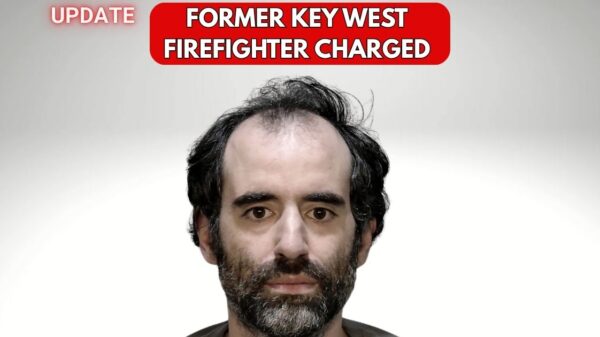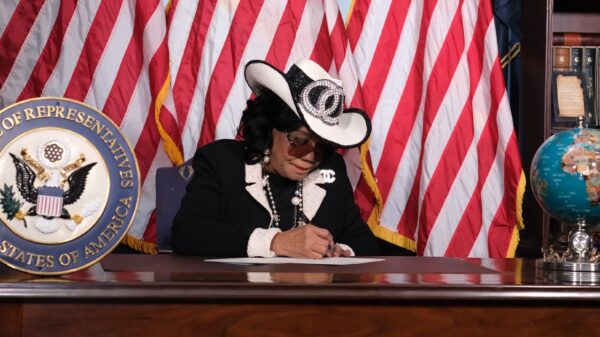Florida Congresswoman. Maria Salazar (FL-27) introduced the Nurture Originals, Foster Art, and Keep Entertainment Safe (NO FAKES) Act along with Reps. Madeleine Dean (PA-04), Nathaniel Moran (TX-01), Becca Balint (VT-At Large), and Joe Morelle (NY-25). The legislation protects the voice and likeness of all individuals from unauthorized, computer-generated recreations from generative artificial intelligence (AI) and other technologies.
The Senate version of the bill is being introduced by Senators Marsha Blackburn (R-TN), Chris Coons (D-DE), Thom Tillis (R-N.C.), and Amy Klobuchar (D-Minn.).
“In this new era of AI, we need real laws to protect real people,” said Rep. Salazar. “The NO FAKES Act is simple and sacred: you own your identity—not Big Tech, not scammers, not algorithms. Deepfakes are digital lies that ruin real lives, and it’s time to fight back.”
“The NO FAKES Act works to tackle the risk that AI poses to artists, content creators, and the victims of deep fakes. The realities of new AI technology breakthroughs mean we must establish a clear right to control digital replicas of one’s own voice and image. And this is a common sense, bipartisan proposal. I’m grateful to work with Representatives Dean and Salazar to safeguard America’s artists and creators, ensuring that AI’s potential is harnessed for good,” saidRep. Balint.
“A.I. deepfakes are a serious threat to privacy and intellectual property—and if we don’t act, the damage will only grow,” said Rep. Morelle. “That’s why I’m backing the bipartisan NO FAKES Act to modernize our laws, promote innovation, and keep people safe.”
From the biggest entertainers to everyday Americans, non-consensual voice and image clones can ruin careers, deceive families and friends, and traumatize victims. The American people need clear rules that empower individuals to control their own faces and voices while encouraging innovation and ensuring that the United States remains the world leader on artificial intelligence.
“While AI has opened the door to countless innovations, it has also exposed creators and other vulnerable individuals to online harms,” said Senator Blackburn. “Tennessee’s creative community is recognized around the globe, and the NO FAKES Act would help protect these individuals from the misuse and abuse of generative AI by holding those responsible for deepfake content to account.”
“Nobody—whether they’re Tom Hanks or an 8th grader just trying to be a kid—should worry about someone stealing their voice and likeness,” said Senator Coons. “Incredible technology like AI can help us push the limits of human creativity, but only if we protect Americans from those who would use it to harm our communities. I am grateful for the bipartisan partnership of Senators Blackburn, Klobuchar, and Tillis, the support of colleagues in the House, and the endorsements of leaders in the entertainment industry, the labor community, and firms at the cutting edge of AI technology.”
“While AI presents extraordinary opportunities for technological advancement, it also poses some new problems, including the unauthorized replication of the voice and visual likeness of individuals, such as artists,” said Senator Tillis. “We must protect against such misuse, and I’m proud to co-introduce this bipartisan legislation to create safeguards from AI, which will result in greater protections for individuals and that which defines them.”
“Americans from all walks of life are increasingly seeing AI being used to create deepfakes in ads, images, music, and videos without their consent,” said Senator Klobuchar. “We need our laws to be as sophisticated as this quickly advancing technology. The bipartisan NO FAKES Act will establish rules of the road to protect people from having their voice and likeness replicated through AI without their permission.”
“As AI’s prevalence grows, federal law must catch up—we must support technological innovation while preserving the privacy, safety, and dignity of all Americans,” said Representative Dean. “By granting everyone a clear, federal right to control digital replicas of their own voice and likeness, the NO FAKES Act will empower victims of deep fakes; safeguard human creativity and artistic expression; and defend against sexually explicit deepfakes. I’m grateful to work with a bipartisan group of colleagues on common sense, common ground regulations of this new frontier of AI.”
The NO FAKES Act will:
• Recognize that every individual has a federal intellectual property right to their own voice and likeness—including an extension of that right for the families of individuals after they pass away;
• Empower individuals to take action against bad actors who knowingly create, post, or profit from unauthorized digital copies of them;
• Protect responsible media platforms from liability if they take down offending materials when they discover them;
• Ensure innovation and free speech are protected; and
• Provide a nationwide solution to a patchwork of state laws and regulations by January 2, 2025.
ENDORSEMENTS
This legislation is endorsed by the Recording Industry Association of America; Motion Picture Association; SAG-AFTRA; YouTube; Recording Academy; OpenAI; Warner Music Group; Universal Music Group; Sony Music; The Walt Disney Company; IBM; Vermillio; Hive; Independent Film & Television Alliance; WME; Creative Artists Agency; Human Artistry Campaign; National Association of Broadcasters; the Model Alliance; ASCAP; Nashville Songwriters Association International; the Authors Guild; the National Center on Sexual Exploitation; Television Academy; Enough is Enough; American Association of Independent Music; and more.
“This bill proves that we can prioritize the growth of AI and protecting American creativity at the same time. We applaud the Senate and House sponsors driving this legislation that provides balanced and effective protections for all individuals against exploitative uses of their voice and likeness while supporting free speech, reducing litigation and achieving the promise of AI technology,” said Mitch Glazier, Recording Industry Association of America (RIAA) Chairman & CEO.
“The NO FAKES Act thoughtfully establishes federal protections for performers from generative AI abuse while also respecting creators’ First Amendment rights and freedoms,” said Charles Rivkin, Chairman and CEO of the Motion Picture Association (MPA). “The MPA thanks Senators Blackburn, Coons, Klobuchar, and Tillis for re-introducing this bill. Specifically, we appreciate the inclusion of safeguards intended to prevent the chilling of constitutionally protected speech such as biopics, docudramas, parody, and satire. This is necessary for any new law to be durable. The MPA will continue to work closely with the bill’s sponsors as the NO FAKES Act makes its way into law.”






















